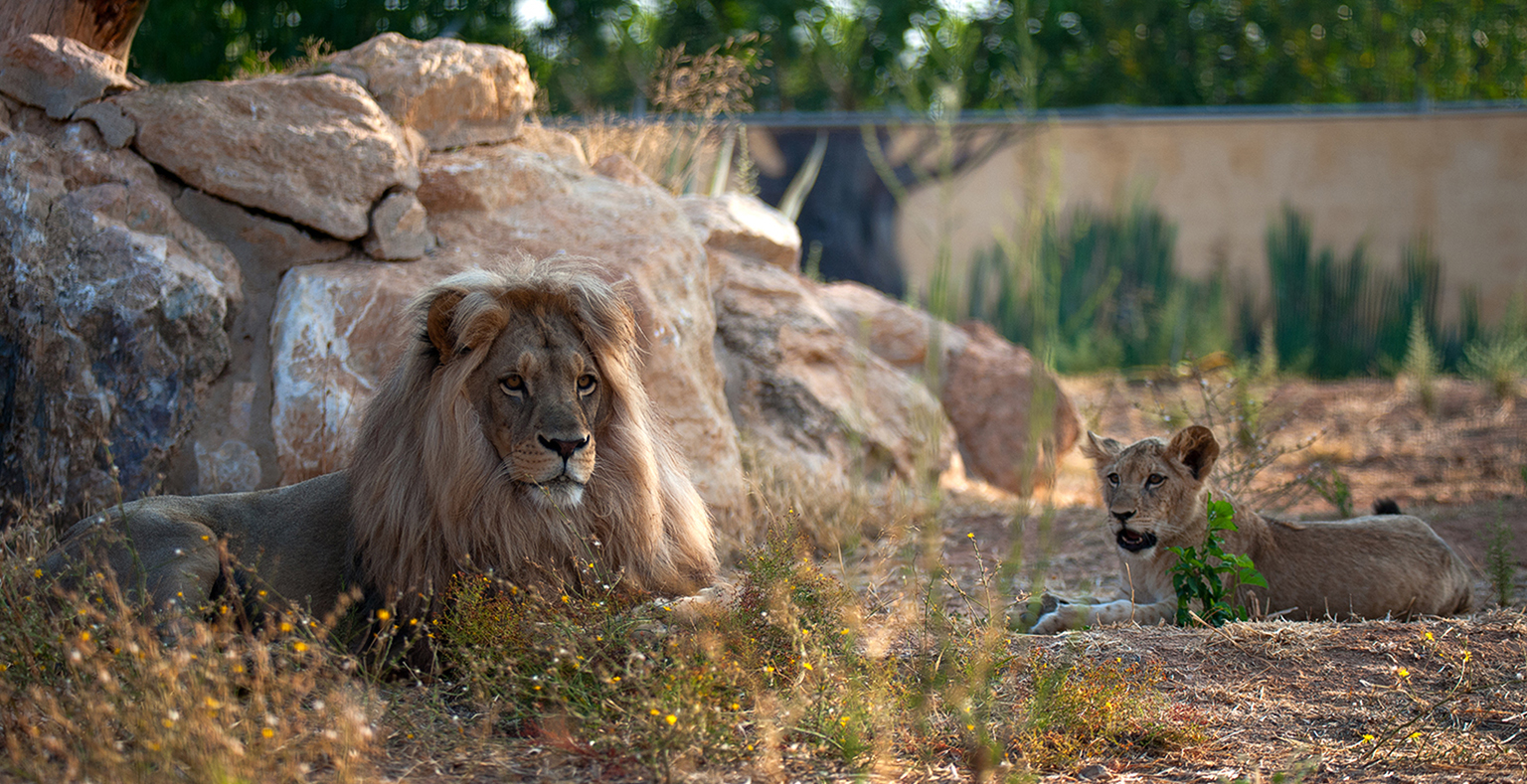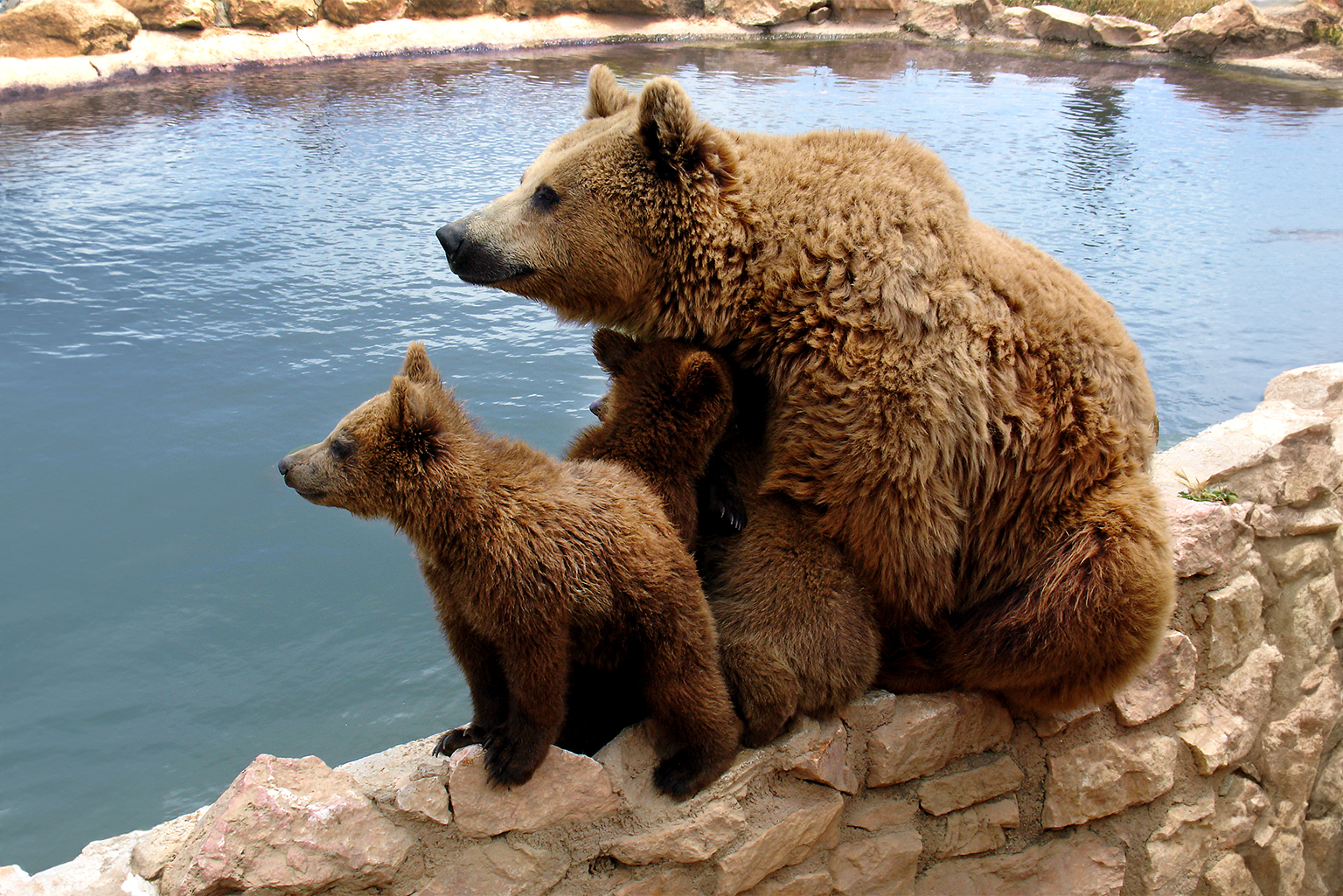
WILD FAUNA UNDER HUMAN CARE
The role of proper Zoological Parks, which maintain healthy populations of wild species by adhering to standard animal-keeping protocols regarding wildlife under human care, is immensely valuable. On one hand, they protect and conserve wildlife, and on the other hand, they educate and raise awareness among the general public about the issues wildlife faces in nature. More specifically:
- In a world where countless species are disappearing daily and will no longer exist in the wild in a few years, properly certified Zoological Parks, as the ones of the European Association of Zoos and Aquaria (ΕΑΖΑ), roughly 300 in Europe, which follow strict scientific protocols for managing their animals to ensure their welfare will eventually serve as ‘arks of salvation’ for their genetic material. This is due to the strict scientific breeding procedures for each reproducing pair of species that face survival threats in nature.
- Additionally, the experiential encounter of wildlife that parks offer to their hundreds of visitors annually is significantly richer than a book or documentary – the effect on the senses of reality in its true dimensions, enriched with the sounds, smells and body language of the wild animal, leaves a deep impression on one’s psyche and it provenly affects visitors’ souls profoundly. Indirectly, it creates a more knowledgeable public that consciously advocates for more animal-friendly legislation and State care of wildlife. Moreover, it inspires and creates new generations of animal-loving pioneers in wildlife conservation, as acknowledged by all great conservationists like Jane Goodall, Diane Fossey, Sir David Attenborough etc., who first came into close contact with and were inspired by a wild animal at their local zoo (with 300 years of presence in Europe).
- Furthermore, many active activists of the past, who once fanatically and romantically supported free wildlife in theory and speech but without results, have found refuge and a productively creative workshop in today’s proper zoos. They can now have a real impact in their areas of interest through the parks’ financial resources and commitment to preserving wildlife as much as possible. Notably, EAZA last year invested over 100 million euros in both field and park facilities (in-situ and ex-situ) for substantial Wildlife Protection and Conservation programs.
- From an animal welfare perspective, given the strict application of best animal care practices and management protocols for ensuring the welfare of wild animals, the only other essential ingredient for their happiness is the LOVE AND RESPECT from their caretakers. It is certain that animals receive this love abundantly, as all caretakers start from a deep love for animals. This love motivates them to engage in this particular occupation, which does not have the conveniences of most jobs and has countless difficulties during their work, seven days a week, from morning till night, 365 days a year, but offers nevertheless immense gratification for animal-loving individuals, who can experience and appreciate the positive effect of their work on the animal’s lives and state of mind.
- In Greece, Attica Zoological Park in Spata, is a member of EAZA and follows its international protocols to ensure the welfare of the 2,000 animals it hosts. As a member of EAZA, it participates and invests in many international conservation programs, to protect and preserve numerous endangered species worldwide. In Greece, it has consistently contributed to countless efforts to assist all conservation organisations which have sought its help. It is certain that all its animal caretakers are driven by strong animal-loving feelings. Its educational and awareness-generating work is recognised by the overwhelming majority of parents and educators who visit it during school trips year round.


